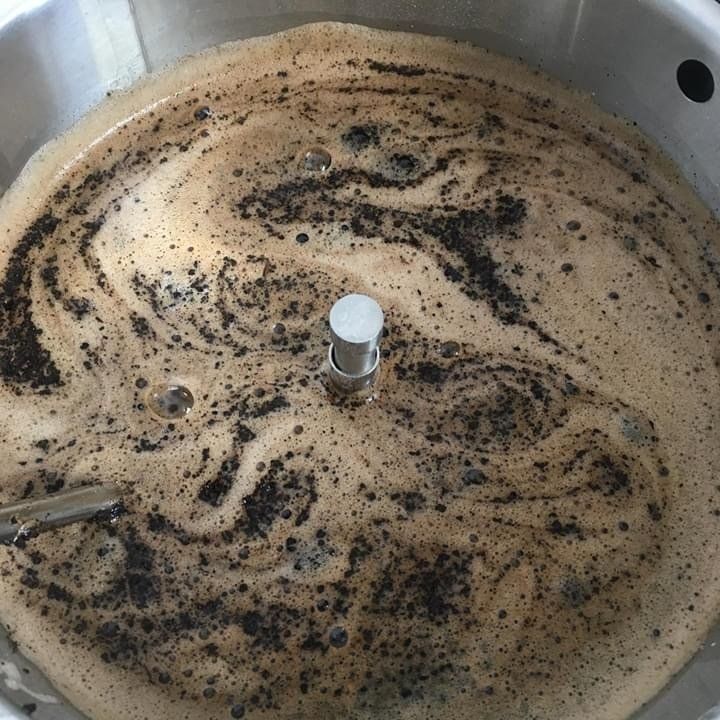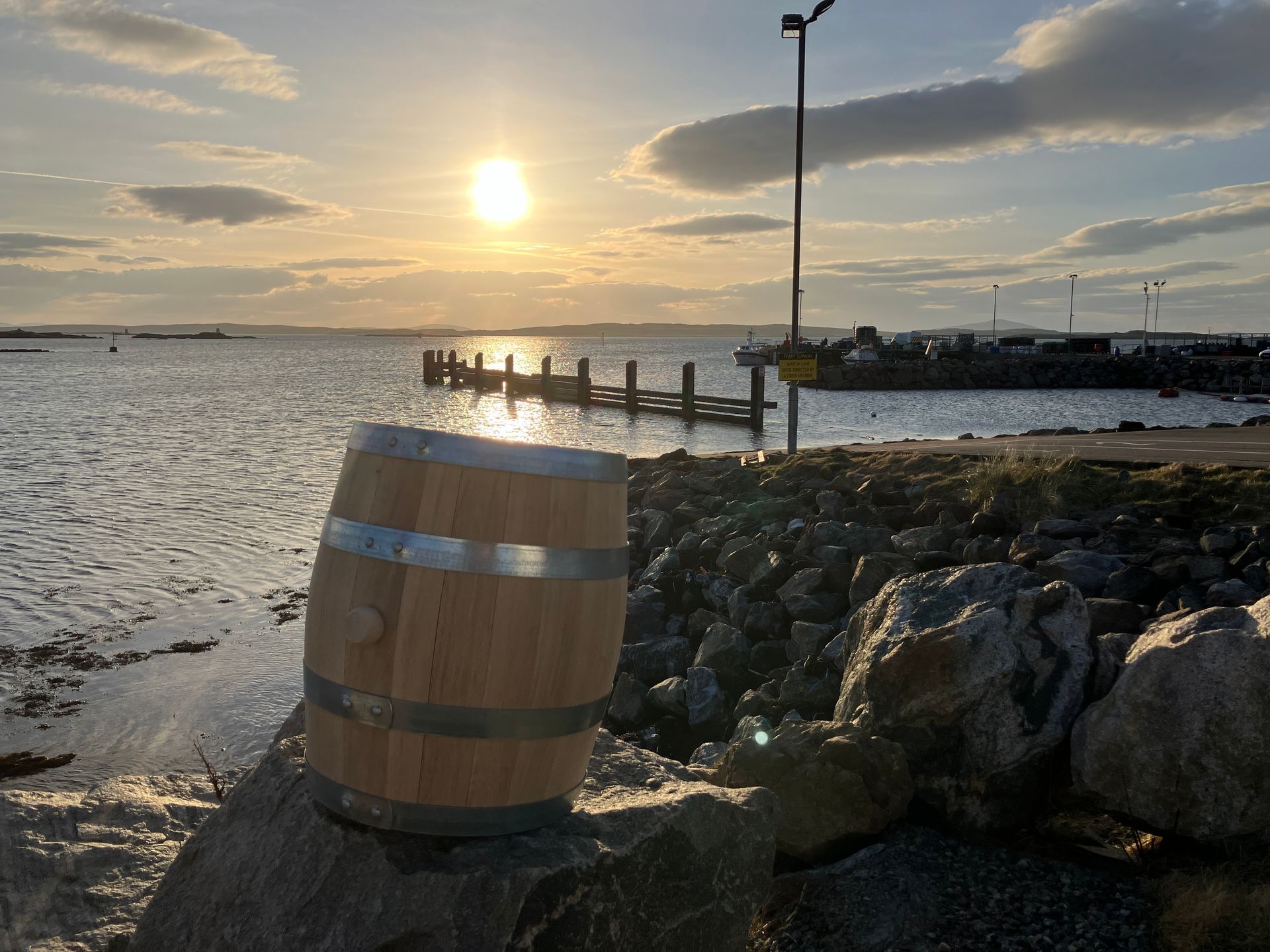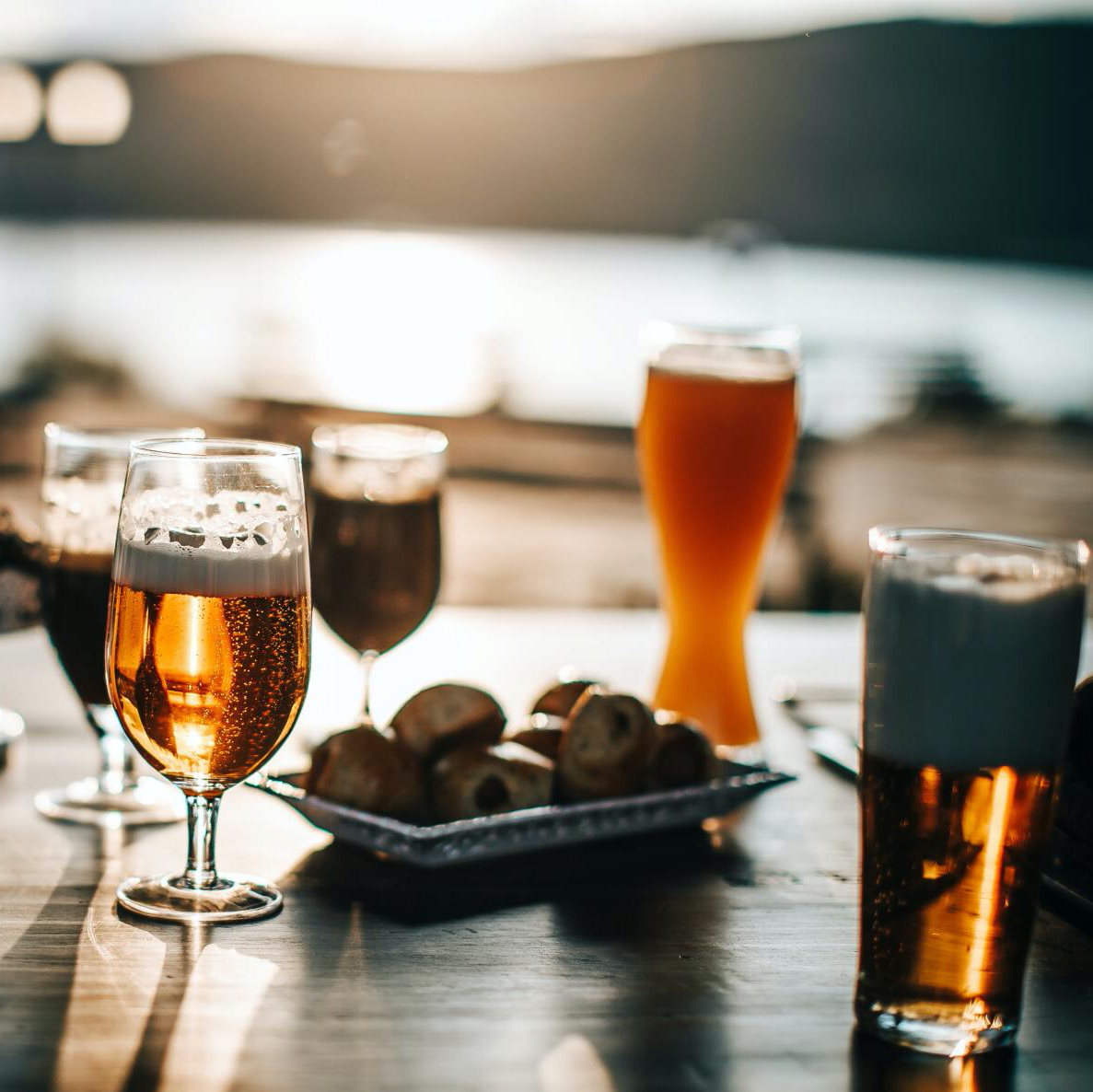15. Confessions of a Brewer

The Ancient Art of Modern Brewing or Keeping Real Ale 'real'
I hope we can agree that beer is a wonderful thing. In terms of ingredients and processes its not too complicated and people all over the world have been producing beer for thousands of years. The nuts and bolts of brewing can be summarised in one sentence: Making beer is extracting fermentable sugars from grains, preserving & flavouring with hops and fermenting with yeast.
Brewing has undeniably come a long way from the spontaneously fermented bread beers of Mesopotamia 7,000 years ago. Although brewing is still based on centuries-old principles, advancements in technologies have rapidly changed the modern brewery and the character of the beers they produce. Many of the processes that would have been completed by the brewer are now automated. From precisely roasting and milling grain, controlling mashing temperatures and timings to filtration, carbonation and canning. In most breweries automation is employed at every stage of the brewing process.
So where does our small brewery in Borrisdale fit into this picture.
We like to think that we do things traditionally. We use all natural ingredients and we control every part of the brewing process. However that’s not to say that we are behind the brewing times. We have developed our beers and our methods to make the most of everything that is available to the modern brewer whilst keeping the real ale ‘real’. We’re happy to be open about our ingredients and our methods because we are proud of them. We think it’s what makes our brewery special.
The alchemy starts with grain

Traditionally the brewer’s grain of choice is barley. It makes great beer because it is very “starchy” it has a protective husk and great flavour. To make beer with barley it must be malted. This involves encouraging the grains to germinate in a warm moist environment before kilning or roasting the grains to halt germination. It is at the kilning stage that different flavours and colours can be achieved by adjusting the time and temperature of the roast; Pilsner malt is lightly roasted and black malts are roasted long and hard!
We often boast that we do everything ourselves but we don’t roast or mill our own grain!
We source our malts from Baird’s Malt which was founded in 1823 to supply Glasgow’s breweries. They partner with over 800 British farmers who grow the UK’s best quality barley. Baird’s can supply over 40 different malts and they arrive in Borrisdale in 25kg sacks ready milled. We also use wheat and oats in some of our beers which we source from another British company, The Malt Miller . As their name suggests they mill grains, but what makes them different is that they freshly grind the grain when it is ready to be shipped and will produce from super fine mill to coarse crush on request. We like the service and ethos of the companies who supply us and that matters to us. If we outsource any part of the process to another company we need them to be people we trust.
Hops. The showoff of the brewing trilogy.
Early brewers would have used the whole air dried hop cones or flowers in their beers, however in the early 1970’s hops became available in pellets. Fresh hops are dried and slowly milled at low temperatures to retain colour and avoid oxidation. The resulting sticky powder is compressed into pellets and dried. The natural character of the hop provides both the binder and a protective coating so the pellets don't contain any additives. This results in a processed but all natural product. We like using pelletised hops because unlike whole hops, the pellets sink and dissolve which means they don’t clog filters during the boil and (technical info alert!) the increased surface area improves isomerization of alpha acids. Pelleted hops also store well and can be transported all over the world which means the variety of hops available is almost endless.
As you may have noticed we love hops and we love to experiment so we use several different suppliers. Brewer’s Select were founded in Essex in 2013 to supply the growing Craft Beer market and they source hops from all over the world. We also use The Malt Miller for hops. They stock a range of around 85 different hop varieties in both pellet and whole hop form. We love that they receive dried hop bales and process and vacuum pack them in house. Our other preferred hop supplier is a company in Northern Ireland called…wait for it…Get ‘er Brewed. This is one area where tiny breweries like us have a real advantage. Last year we used an Australian hop called Eclipse in our Single Malt and Single Hop SMASH beer. This was a tricky one to get hold of because it isn’t yet grown in commercial quantities, but as we needed such a small quantity we sourced just enough for one special edition batch from a Home Brew supplier.
One ingredient we have a great supply of in Harris is water and for most beers malt, water and hops are all you need to start brewing. The water is added to the brewing vessel first and heated to the required temperature. Next you add the grain and much like making porridge stir, stir and stir some more. This is mashing. By steeping the grain in warm water the sugars and malt flavours and aromas are released. At this stage the grain is removed and rinsed with hot water or sparged. The resulting barley infused liquid or wort is then boiled.

This sounds simple but to achieve really complex flavours the wort needs to reach and hold different temperatures for different amounts of time and hops are added, sometimes at multiple points of the boil to give the beer bitterness. Other flavourings like fruit, coffee, spices, herbs and chocolate can also be added at this point. For a larger brewing set up this would be automated but we do this all by hand. We use a very clever brewing vessel with a fancy android display to which you can (apparently) BluTooth beer recipes and programme set temperatures, timings & flow rates however we choose to manually adjust the settings in response to what’s happening in real time. It’s very hands on and requires a lot of patience & knowledge of the process but our finished beers wouldn’t be as interesting without the Nick’s constant attention to detail and his tweaks to each individual brew.
After the boil the wort is chilled which involves the beer being pumped around the pipes of a counterflow chiller in scenes reminiscent of Willy Wonker’s factory. From here the cooled wort is introduced to the yeast, and in some cases more hops (this time for aroma) in a fermenting vessel. Right on cue here is a photo of our shiny new fermenter, and our amazing view!

and lastly the unsung hero...yeast
Yeast is a microorganism which feeds on sugar and produces alcohol, carbon dioxide and other compounds that improve the beers flavour. Beer would just be a non-alcoholic barley tea without yeast, however it is often an underrated ingredient in the brewing process. When describing beers we tend to talk about the malt and hop flavours however sometimes fruity flavours such as banana, apple and pear or spicy notes like clove or pepper come from the yeast.
We use half a dozen different strains of yeast on a regular basis. Different yeasts for different flavours, carbonation profiles and alcohol efficiencies. After around two weeks most of the sugars will be used, the beer will have reached its final strength and is ready to be bottled.
This is where it gets interesting!
At the point of bottling most breweries (including micro breweries) complete a number of steps which we have made a decision to forego.
- Filtration: to remove the unwanted (but often tasty) bits so the beer comes out clear. Our reasoning for skipping this step is that beer lovers understand that real beer isn’t crystal clear and with a minimal amount of waste the cloudy bits sink to the bottom of a bottle if it’s stored and poured correctly.
- Addition of finings: Finings are typically added to fermented beers four to five days before bottling or racking to remove any remaining yeast or protein haze. Common finings are gelatine which is derived from animal collagen and isinglass which is a product made from the swim bladders of fish! We don’t mind if our beers aren’t perfectly clear but we do add an all natural ingredient at the end of the boil to helps reduce cloudiness in the finished beer. The dried and compressed extract of Irish moss known as Protafloc isn’t actually a moss at all but a type of red seaweed called Carrageen and is used in brewing is a traditional plant based fining. We have made a decision to not use any animal products in our beers (unless honey could be considered to be derived from animals) however we have no shame in using one particular animal in our marketing!
- Forced carbonation: Most breweries carbonate their beers by directly infusing the beer with carbon dioxide from a gas cylinder at the point of bottling, or canning or at the point of serve for kegged beers. This is known as Forced Carbonation. We never force carbonate our beers. Instead we use a natural process which is only possible because our beers are unfiltered. Having produced the alcohol content of the beer we give the remaining yeast in the fermented beer one final job. By adding a small amount of sugar syrup at bottling stage the yeast is reactivated in a secondary fermentation which produces carbon dioxide. Unlike most breweries we don’t have a canning or bottling line. We add the syrup to the finished beer and fill each and every bottle by hand, adding a crown and manually clamping the bottle sealed to capture the fizz of the final fermentation. Two to four weeks later the beer is “Bottle Conditioned” and ready to drink.
Celebrating Brewing Innovation
This is our first in-depth blog about the ingredients and methods we have chosen to use in our brewery. We’re proud to be able to say that we are brewing beer ethically, sustainably and traditionally but we’re far from a brewing museum. We don’t believe in doing things “old school” if it can’t be justified so we confess we have modern small scale brewing equipment and we use ‘processed’ natural ingredients in the form of hop pellets and seaweed tablets. We let computers manage the roasting and milling of malts and who knows one day we may even have a labelling machine! So maybe this is less of a Brewer’s Confession and more of a celebration of how automation and innovation can improve age old techniques to produce an infinite variety of fantastic beers. If the ancient art of brewing continues to evolve at this rate just imagine what is possible in the next 7,000 years!








